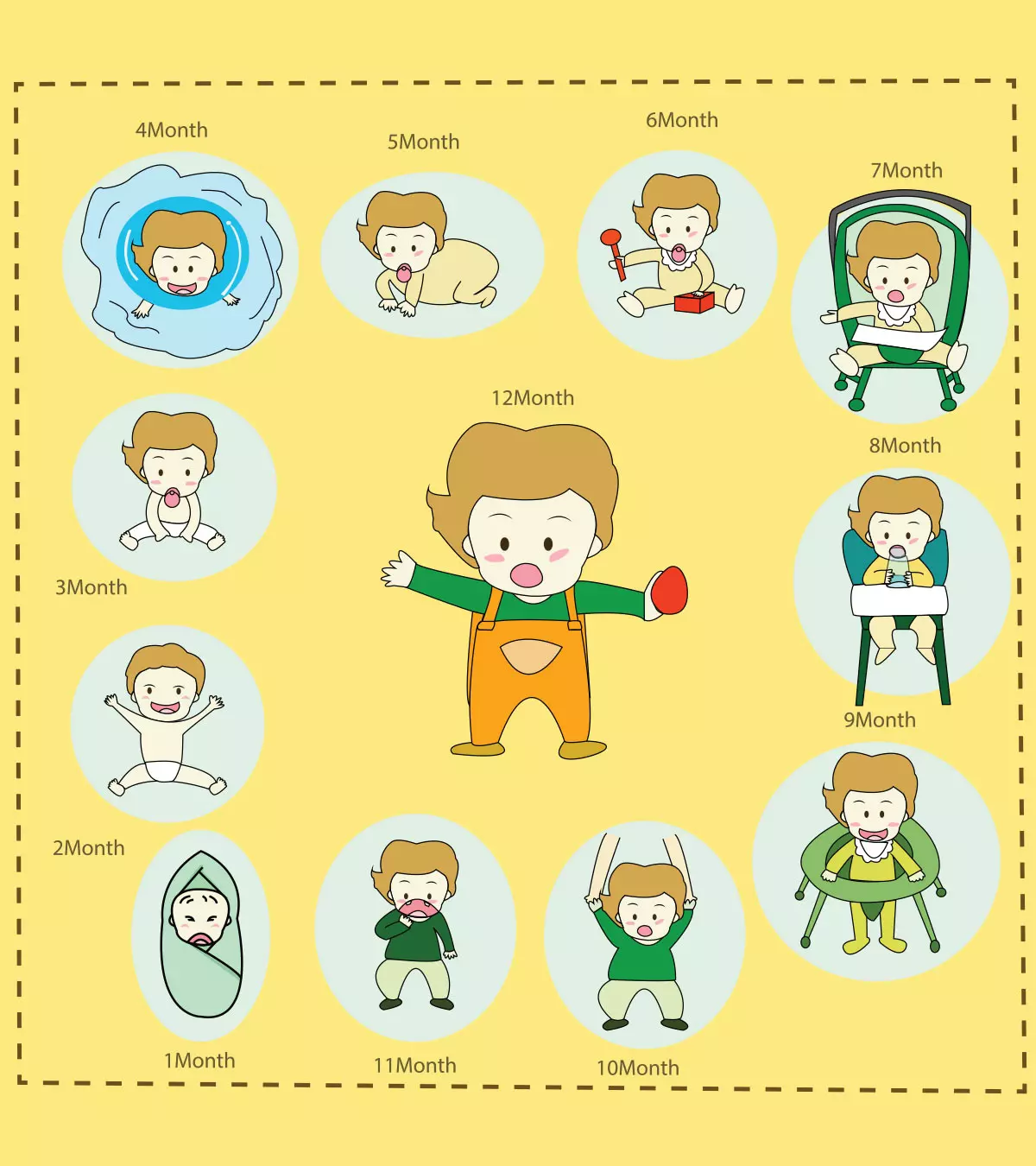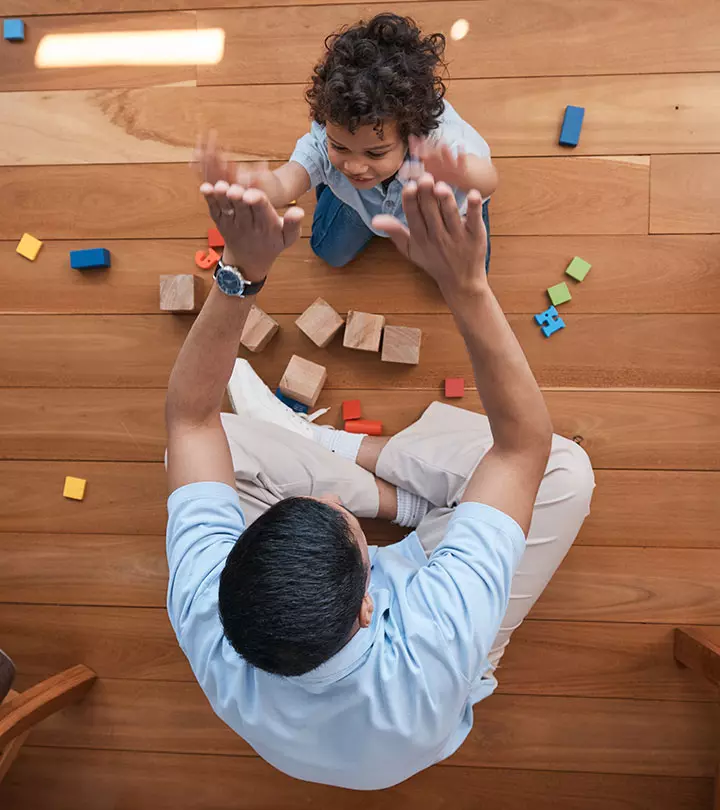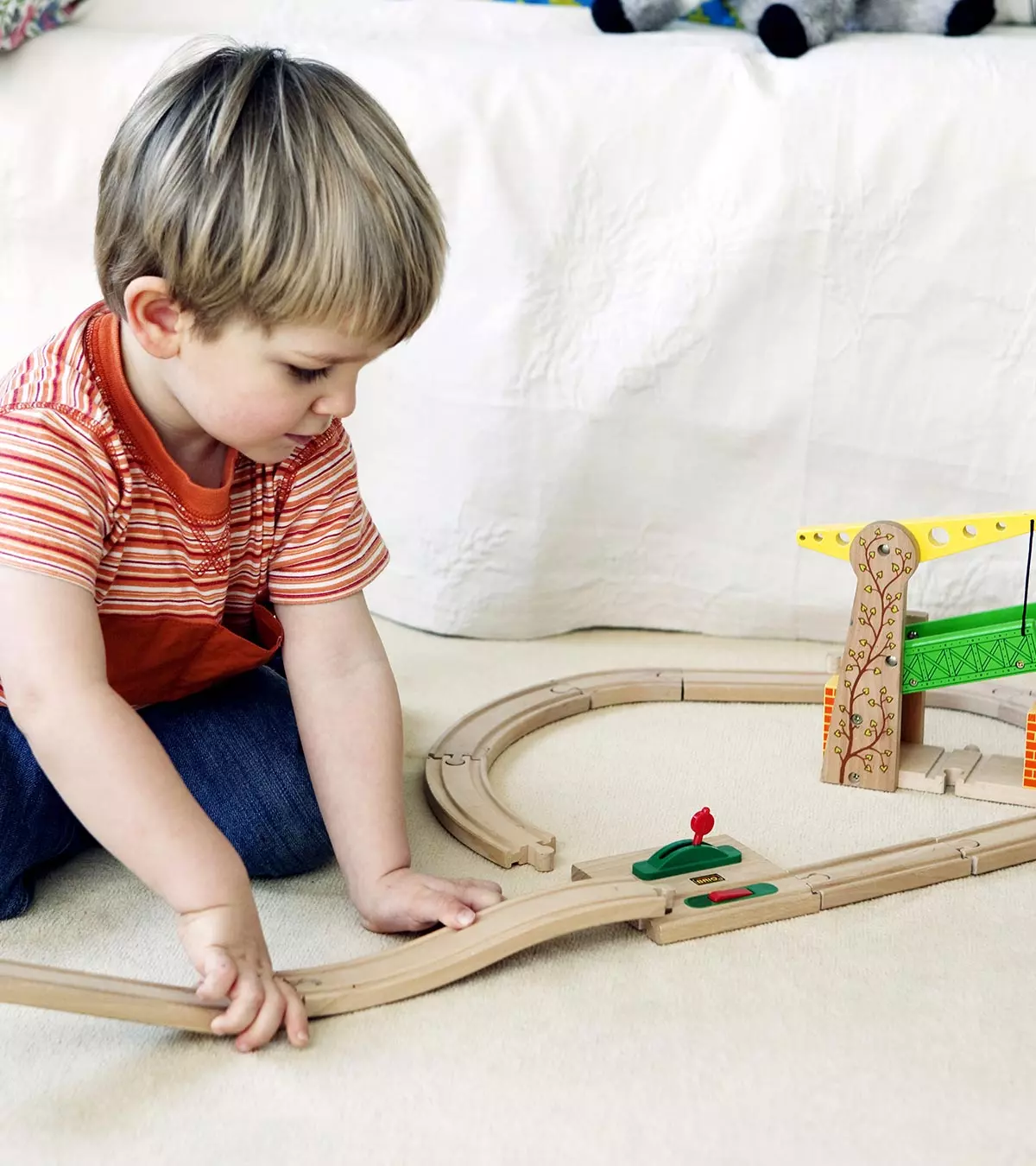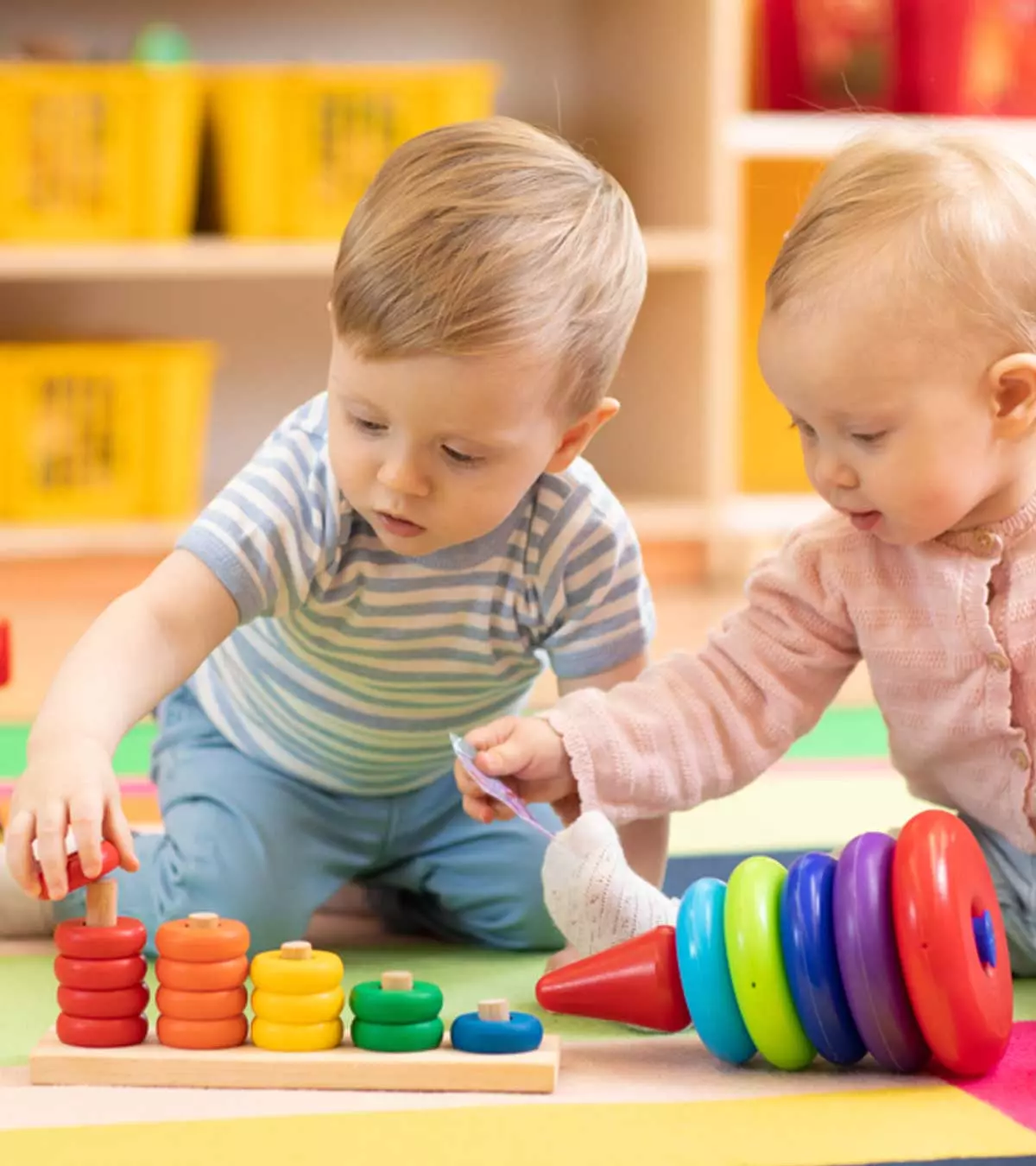
Image: MomJunction Design Team
Adolescence is characterized by physical and psychological development in growing children.
In this stage, self-doubt and low self-esteem for teens may occur due to various social and family factors.
Teenagers may face peer pressure, cut-throat competition, body-image issues, high parental expectations, and other pressures that may have long-term psychological impacts. As a result, the teen may be broody or weepy initially and become progressively withdrawn.
As a parent, you would wish to help your child face these challenges and move forward in their life. Read on as we discuss the causes of low self-esteem and its signs and suggest activities to improve self-esteem in teens.
Key Pointers
- Social and familial factors may cause low confidence and self-doubt in teens.
- Difficulty in socialization and isolation are some signs of low self-esteem in teens that may eventually lead to depression.
- Activities, such as positive affirmation days and maintaining a gratitude journal, can help boost confidence and develop a positive mindset.
- Teens can also learn to value themselves through activities like making self-appreciation charts and body appreciation mirror time.
- Parents’ positive feedback and encouragement can also help build their confidence.
What Is Self-Esteem?
Self-esteem is the evaluation of our values and capabilities.
Low self-esteem issues can lead us to doubt and underrate our capabilities and beliefs and put us in a vicious circle of negative thoughts leading to an inferiority complex (1).
Where Does Self-Esteem Come From?
Self-esteem for teens can come from various sources. It can be internal, their relationships, and their achievements.
- Teens’ self-talk and the voices inside their heads majorly affect their self-esteem. Engaging in negative self-talk can damage their confidence levels, so encouraging them to appreciate themselves and celebrate their achievements, can positively impact how they perceive themselves.
- Teen self-esteem is also influenced by the support and feedback they receive from family and friends. Positive words and praise can foster pride and self-worth, while undue criticism and negativity from those close to them can challenge their self-esteem.
- Self-esteem for teens can also come from their skills and accomplishments. Learning how to do things, be it sports, academics, or any other skill can immensely improve how they view themselves.
What Causes Low Self-Esteem In Teens?
Your teen can develop low self-esteem due to a number of events happening in their life. Some of them are (2):
- Disturbances in family life
- Authoritarian parenting style
- Poor school performance
- Appearance issues like weight, height, and complexion
- Bullying in school
- Poor social circle
- Inability to ‘fit’ in with others
- Comparisons to peers or social media influencers
- Emotional or social discrimination
- Medical problems from accidents, chronic illness, etc.
- Lack of parental support in making decisions
In each case, your teen might blame themselves for the situation and think it’s their fault.
How Do You Know If Your Teen Has Low Self-Esteem?
If you spot a few or more of the following signs in your teen, they are, probably, having low self-esteem issues.
- Showing emotional indifference
- A tendency to avoid new things or experiences
- Difficulty in interacting with peers and friends
- Low levels of motivation and enthusiasm
- Persistent fear of embarrassment or failure
- High levels of frustration
- Negative self-talk
- Problem making new friends
- Hiding in a cocoon
If your teen has low self-esteem, they might tend to avoid situations with risks of failure.
In extreme cases, low self-esteem can lead to long-term problems.
Adolescence can be a difficult period marked by fluctuating levels of self-assurance. The following chart displays the results of a short, independent study that showcases the variations in confidence levels of boys and girls during adolescence.
The results reveal that the confidence level in boys and girls remains consistent until age 12, after which it decreases and widens between the two genders. As shown in the chart, girls experience their lowest levels of self-confidence at 14, which is 27% lower than boys report at the same age.

Trends in confidence levels in teenage girls and boys
Source: Teen Girls Are Less Confident Than Boys & It’s Affecting Their Futures; YPulse/The Confidence Code for GirlsWhat Can Affect A Teen’s Self-Esteem?
A teen’s self-esteem can be affected by family, friends, social media, and how they perceive themselves. Some key factors are listed here.
- The influence of the family can impact a teen’s self-esteem positively or negatively. Positive feedback would boost their self-esteem, while harsh criticism can lower it.
- Friends can have a direct impact on a teen’s level of self-esteem. Toxic friends who bully and tease can negatively impact their self-esteem.
- School plays a big part in a teenager’s life. If a teen is struggling academically or if they are constantly compared to their peers, their self-esteem may suffer.
- Celebrities are one of the biggest influences in a teenager’s life. They might compare themselves to actors, models, or their idols, and may feel the pressure to present a perfect image.
- Through social media, teens are regularly exposed to people’s lives and daily activities, which may affect their self-esteem. Comments and feedback from their peers can also affect how teens feel about themselves.
- Achievements can have an impact, both positive and negative. When a teen learns new skills and achieves their goals, it can enhance self-esteem. On the other hand, failures may cause their self-esteem to drop.
- A teen’s inner voice can have drastic effects on their self-esteem. Negative self-talk and focusing on failures rather than accomplishments can harm their self-esteem.
Why Is Self-Esteem Important For Your Teenager?
Self-esteem in teenagers is important because it lays the foundation for their self-esteem as adults. Having healthy self-esteem allows your teenager to understand their worth and look for relationships where they are treated with respect, honesty, and care. When your teen has positive self-esteem, they are more likely to be open to taking risks and exploring new possibilities, which can lead them to discover themselves.
Teenagers with positive self-esteem are more likely to act independently and maturely. They take pride in their accomplishments and accept new challenges readily. When they are in frustrating situations, they are more likely to handle them responsibly and be more willing to help others in need.
On the other hand, teenagers with low self-esteem may avoid certain situations and activities where they feel they may encounter failure or mistakes, or feel embarrassed. These can be schoolwork, making friends, and trying new activities. If not addressed, these teenagers may grow up and face relationship problems, low motivation, and poor body image. They may be more prone to negative moods like sadness, anxiety, anger, or feeling ashamed. Teenagers with low self-esteem may even resort to drugs and substance abuse to make themselves feel better or numb their feelings of desperation.
Long-Term Effects Of Low Self-Esteem In Your Teen
Low self-esteem need not always result in something harmful or bad for the teen, especially if you identify and address it in time. In some cases, it might lead to long-term effects, including:
- Anxiety issues
- Panic attacks
- Relationship problems
- Body image issues
- Reliance on alcohol or drugs to feel better
- Depression
- Bad friendships
All these can be avoided with effort from you and your child.
Activities To Improve Self-Esteem In Teens
Apart from your support and encouragement, you can motivate your teen with some interesting activities (3) to boost their self-esteem and make them confident.
Here are some such activities you may try:
1. Certificate of wins
With this activity, make your teen realize all the good things they have achieved and visualize their coming achievements. This is a great activity for self-esteem development.
What to do
- Divide the chart into four sections: The first phase of life (5-9 years), the second phase (10-14 years), and recent successes and the success wanted in the next five years.
- Encourage your teen to fill up the sections with color markers and put the chart up in their room.
- The chart would be a giant certificate of all their successes.
What they learn
This worksheet helps them see that there are many things that they have achieved in their life and they have the capability to achieve more in the future. This self-esteem exercise helps boost their confidence and improve their self-respect.
2. Coat of arms/ family crest
If your teen is creative or loves painting, this activity provides a creative outlet for them and helps build their confidence and self-respect.
What to do
- Make your teen summarize the coat of arms with the tagline, ‘What makes me great’.
- Individual sections of the coat of arms should reflect what makes your teen a good sibling, friend, child, and person.
What they learn:
Having a personal coat of arms will make your teen feel great about themselves. Listing out reasons why they are great will make them realize they are good.
3. Positive affirmation day

Observe a positive affirmation day at your home once a week for your teenager to feel confident and affable. This can work wonders in boosting their self-esteem and self-image.
What to do
- On this day, instruct your teen to say and think positively about themselves.
- You and your family members should reaffirm those positive qualities your teen comes up with. For example, if your teen thinks they are great at certain household chores, affirm that point and tell them you are proud of them.
- However, be realistic and do not credit the teen with something they don’t possess.
- You can also go with an affirmative journal: you and your child can write and dictate it.
- Many people believe that self-esteem affirmations at the start of the day help.
What they learn:
Your teen finds that they have several things that they are good at and other people agree with their qualities.
4. Positive goals diary
This self-esteem improvement activity makes your teen identify their self-esteem goals and ways to achieve them. Your teen can do the activity by themselves or collaborate with you.
What to do
- The activity is divided into two sections — ‘Setting goals’ and ‘Obstructions and strategies’.
- Under the first section, ask your teen to write the goals they want to achieve in the next few days, next month, one year, and the coming five years.
- In the next section, tell them to write down how they plan to achieve the goals and what problems they might face.
- Once they have attained their goals, they can include their self-esteem achievements in the diary too.
What they learn:Setting goals and building plans and strategies to achieve them will give your teen a sense of purpose.
This is one of the best therapeutic activities for teens that can make them a much more positive person and less afraid of taking risks.
 Quick tip
Quick tip5. The flip book of mistakes

This activity will help your teen learn lessons from their past mistakes and grow above them. It will help them to ‘flip’ their failures into success.
What to do
- Instruct your teen to write down their failures or the mistakes from the past that have affected them the most.
- Tell them to note down what they think are the possible reasons for the failures.
- In the next section, encourage them to come up with solutions to avoid similar problems in the future.
What they learn:
This activity helps your teen realize that failure is a part of life and that failures can be utilized for greater success. This helps them curb the negativity from any failure in their life and improve their self-image.
6. Sentence completion worksheet
This exercise will help your teen become comfortable sharing their thoughts with others, making it easier for them to work on their self-worth. The activity is intended to help them explore their feelings and emotions.
What to do
- Come up with open-ended questions like, ‘I feel my future is,’ ‘The thing I am most afraid of,’ ‘I wish I could,’ ‘I love when,’ ‘I struggle when,’ ‘Today is going to be’.
- Ask your teen to answer these at the end of each day.
- Compare the trend of their answers after two weeks.
What they learn:
When this activity is done in addition to other positive behaviors, the responses gradually turn more positive. The activity gives an insight into how to be happy in life and also gives them a self-esteem boost.
7. Gratitude journal

Maintaining a gratitude journal is called self-esteem journaling. It can be immensely satisfying for your teen and help them feel more positive about life and themselves.
What to do
- Every day, instruct your teen to record/ write at least two things they were grateful for in their day today
- Tell them to increase the number gradually.
- At the end of two weeks or a month, feel the change
What they learn:
Studies have shown that regular expression of gratitude leads to greater optimism, improved relationships, and better quality of living. It also improves our sense of self-worth (4).
8. Negative self-talk exercise
Negative self-talk is an important reason behind low self-esteem. The following activity, if practiced regularly, will provide self-esteem enhancement, help your teen reduce the cycle of negative self-talk, and make them a more positive person.
What to do
- This activity is divided into four sections. In the first section, tell your teen to write down the thought that triggers a negative thought.
- In the second section, let them explain the negative thought in detail; feelings associated with the negative thought, in the third section; and evidence that does not support their thought, in the fourth section.
- They then need to come up with an alternative positive thought to replace the original negative one and examine how the positive thought makes them feel.
What they learn:
Your teen learns that more often, the negative thought is an exaggeration and that negative thoughts do not define them.
9. Core belief challenge

Your teen might be carrying false, semi-conscious beliefs that might be undermining their sense of pride or worth. It is important to spring clean their beliefs like you spring clean your house in order to make your teen a more positive person. This activity will help you do that.
What to do
- Make your teen identify three negative core beliefs and provide three reasons why each belief is not true.
- Write them down.
What they learn:
This activity will help your teen to challenge their wrong beliefs and make them realize that every negative belief they hold is not true. It will teach them to move beyond presumptions and excel.
10. Assertive communication records
Underdeveloped communication skills may lead to low self-esteem and vice versa. This activity will be beneficial for self-esteem maintenance.
What to do
- Tell your teen to record three instances where they had asserted themselves in a self-esteem communication process and how they felt being assertive.
- If there are no such instances, then it can be their goal to be assertive in the future.
What they learn:
Your teen learns that it is okay to say no and that they should stand up for themselves more often.
11. Self-appreciation chart

In order to develop healthy self-esteem, it is important to appreciate ourselves. This activity will help your teen become more confident. It underscores the importance of self-care for teens.
What to do
- Let your teen write one good thing about themselves, on a chart every day.
- It can start with something small and progress to more meaningful qualities.
What they learn:
Your teen learns to appreciate and love themselves. They might even start practicing self-acceptance and self-love gradually.
12. Positive word of the day
This exercise helps the teen have a positive outlook. Over time, your teen will learn to have a positive outlook irrespective of the circumstances.
What to do
- Ask your teen to come up with a positive word that goes with one good act they did that day.
- For example, if they helped do the dishes, they can come up with the word ‘helpful’.
What they learn:
Doing this exercise reassures your teen that there are a lot of good qualities in them, and they are capable of doing things that are admirable.
13. Body appreciation mirror time

If your teen is a victim of body image issues, then this activity might be just right for them. It will teach them to love their body, no matter how it is.
What to do
- Tell your teen to stand in front of the mirror and come up with three things that they find beautiful in them.
- Make them do this exercise regularly for better results.
What they learn:
Your teen learns to appreciate themselves, be comfortable in their own skin, and stop seeking self-validation from others. Over time, they will learn to let go of their body-image issues.
14. Motivational quote challenge
It can be a great bonding activity for everybody in the family and also a self-esteem exercise for your teen.
What to do
- Tell your teen to come up with three motivational quotes every day to inspire them to take up bigger challenges.
- They can go through self-esteem articles or self-esteem quotes to come up with them.
- You can have a family discussion on them to go deep into the meaning of the quotes.
- The quotes can be quirky, humorous, and interesting.
What they learn:
This activity helps develop a positive outlook and encourage the teen to do something better every day. It is one of the best self-esteem activities for building confidence in teenagers.
15. Body language test

This exercise is crucial for your teen to curb their self-criticism and negative energy that can eat away at their self-worth. It helps them remember that good body language is one of the first steps in developing self-confidence.
What to do
- Tell your teen to observe their body language in a mirror when they are having a negative thought.
- Then ask them to replace it with a positive thought and observe their body language again.
- Let them write down the differences they can see between both cases.
- Talk to them about the changes self-assurance brings about.
What they learn:
This exercise will help them control their negative thoughts by observing their body language. Seeing themselves in the mirror will also give them the chance for self-perception. They will understand the importance of positive body language and the impression it gives to others.
16. Letter of encouragement
With this activity, you can bond with your teen and also boost their self-worth and self-belief. You may engage your entire family in it.
What to do
- Prepare a chart, and ask all the members of your family to fill in two things for which they are proud of your teen, and two things to keep the teen’s morale high.
- Once the chart is filled, hang it in your teen’s room.
- You can collect these letters and turn them into self-esteem books for your teen.
What they learn:
The huge letter of encouragement is a type of self-esteem coaching or self-esteem training for your teen that they are not alone and have people they can rely on. The positive things written about them also keep their morale high.
17. Physical activity hour

Regular self-esteem-building activities and exercises help your teen stay healthy, confident, and active (5).
What to do:
- Encourage your teen to choose any sport that involves considerable physical activity.
- Tell them to spend at least an hour a day on that sport. It would be great if you can play with them.
What they learn:
Playing any sport will make your teen realize that winning and losing are a part of life and not a great deal. Such physical and social skills activities for teens will also instill a sense of sportsmanship in them.
 Do remember
Do remember18. Mindfulness and meditation
Practicing mindfulness can help your teen stay present in the moment.
What to do:
- Ask your teen to focus on their breathing or try a specific breathing pattern.
- Guide them to inhale deeply for a count of four, hold for four, and exhale for four.
- Encourage them to repeat this process until they feel relaxed.
What they learn:
Engaging in mindfulness or meditation helps teens become more aware of their thoughts and feelings and foster calm and self-acceptance. Regular mindfulness sessions may also reduce feelings of anxiety and improve their ability to manage emotions and negative self-talk.
Ways To Help A Teenager Have Self-Esteem
Understanding where self-esteem comes from is helpful for parents to support their teenager’s confidence and well-being effectively. A few ways how parents can work toward strengthening their teen’s self-esteem are discussed below.
1. Show that you love them unconditionally
Showing your teen unconditional love means letting them know you love them no matter what. Your love for them does not depend on their grades, achievements, friends, or behavior. Your love should not be tied to their performance because it can make them feel that they are not enough just as they are.
However, loving them unconditionally does not mean they won’t make mistakes, have bad days, or argue. It also doesn’t mean ignoring abuse. In general, make it clear to them that you love them through their ups and downs.
2. Embrace a growth mindset at your home
Teenagers often have a fixed perspective on who they are and what they can do. Do not let them limit themselves. Encourage them to grow and acknowledge when they make progress. Introduce the idea of a growth mindset in family conversations and even if they outrightly reject it, do not feel discouraged. Remind them that their capabilities are limited and there is always room to grow and improve.
3. Make room for failure since perfection is unrealistic
No one is perfect, which is why it is unfair for you to expect perfection from your teens. When mistakes are made, it can negatively impact your teen’s self-esteem, which is why your voice is needed. When you criticize, rebuke, or panic over their failures, they feel you are implying there’s no hope for improvement and you will not love them if they are any less than perfect. Instead, stay calm and talk with your teen. Refocus your thoughts and ask questions like,
- Where did things go wrong?
- What influenced your decision?
- What did you learn?
- How will you move forward positively?
Doing this can promote a growth mindset and show that setbacks are opportunities for learning and growth.
4. Give reassurance
Teenagers can face immense pressure from school and friends, with new challenges and strong emotions. It helps to let them know that this is normal. To build confidence and self-esteem, help them make important decisions regarding their friend groups and social standing.
Be their voice of reassurance and let them know they are not a bad person if they end a toxic friendship or when they choose an activity over a relationship. Growing and maturing can be difficult, but it does not mean they are doing something wrong by making tough decisions.
5. Talk about assertiveness
Teenagers may not understand the difference between assertive, passive, and aggressive communication. You can help them understand by discussing how their tone of voice can affect communication, and how even body language and non-verbal cues have their impact.
Assertiveness is a way of communicating in a direct and honest manner without hurting other people’s feelings (6). Encourage your teen to learn this skill by practicing in front of a mirror how to communicate confidently, clearly, and persuasively.
6. Give less advice
No matter how old your teens get, they will always be your babies, which is why it can be difficult to sit back and watch them struggle through certain situations. However, always coming to their rescue may not help them in the long run. Avoid giving them advice and solving their problems because when you allow them to think on their own through challenges, brainstorm options, and solve problems, it can boost your teen’s confidence. This does not mean you leave them to fend for themselves; instead, be their cheerleader on the sidelines.
7. Model confidence
Keep in mind your teen watches what you do closely, whether you are speaking highly about someone or putting others down, criticizing yourself, or relying on others for happiness. If you do any of this, be transparent with your teen and tell them you are working on these parts of your personality even as a grown-up.
Your teen’s mindset can be a reflection of their confidence. Even if you cannot force them to follow a growth mindset, practice positive affirmations, or try challenging activities to create a supportive environment at home.
8. Encourage them to spend time with uplifting people
Surrounding your teen with people who have positive things to say about them can be a great way to boost their confidence and self-esteem. People who encourage, support, and believe in your teens can give them a sense of validation and belonging. These people can help your teen feel understood and valued. Friends who give constructive feedback, celebrate your teen’s successes, and help them navigate challenges encourage them to foster a healthier self-image. Your teens need to choose relationships that impact them positively and remove themselves from negative or toxic friendships.
Frequently Asked Questions
1. How does low self-esteem affect academics in teens?
Positive self-esteem is one of the building blocks of academic success (7). It influences a child’s ability to handle social challenges and academic pressures. Consequently, teens with low self-esteem may struggle to concentrate, demonstrate less interest in learning, and be less willing to take risks.
2. How can self-esteem be measured in teens?
Various tests are used to measure self-esteem in teens. The Implicit Association Test (IAT) and the Name-Letter Test (NLT) are the self-esteem measures often used. The questionnaires and statements in the tests help scale the self-esteem levels. These scales are not strongly correlated (8).
3. What are the signs of healthy self-esteem in teens?
Signs of healthy self-esteem in teens include having a positive self-image, the courage to face all types of challenges, the ability to express their thoughts and feelings, and the willingness to embrace and enjoy new experiences.
4. How are positive friendships essential to building self-esteem in teens?
Positive friendship can boost self-esteem in teens since it gives a sense of belonging, support, and confidence. There is a reciprocal relationship between self-esteem and social relationships, and positive friendships and feedback can accumulate over time and have effects (9).
5. How to tell if a girl has low self-esteem?
Signs of low self-esteem can vary from person to person and having one or more of these traits doesn’t necessarily mean someone has low self-esteem. However, a few tell-tale signs of low self-esteem can be overly criticizing oneself, low confidence, withdrawing from social situations, getting defensive, seeking approval, difficulty accepting compliments, being overly sensitive to criticism, and fearing failures.
6. How should I talk to someone with low self-esteem?
Talking to someone with low self-esteem requires empathy, patience, and sensitivity. Be there for them and listen actively to what they are saying, offer your support and avoid harshly criticizing them, be patient toward them, and highlight their strengths and achievements. Remember, you are not there to fix them. Be careful with what you say because certain things may be interpreted negatively. Lastly, encourage them to practice self-love.
7. What is the body language of a low self-esteem person?
You can tell if someone has low self-esteem through their body language. A person with low self-esteem avoids eye contact, fidgets extensively, rarely smiles and tries to distract themselves with things around them. One of the most common body language people with low self-esteem show is they tend to slouch or shuffle their feet. They may also have a weak handshake and often try to vulnerably cross their legs.
Teenagers go through a lot of stress and struggle with low self-esteem. Hence, it is important to provide them self-esteem counseling and enroll in self-esteem programs to boost their confidence to face the world. As a parent, you can become their self-esteem role models or mentors. You should support your child during this phase and make them understand that you will always be there for them. You can enroll them in self-esteem therapy to encourage them. Also, teach them to love and appreciate themselves and those around them. Proper self-esteem education can go a long way in promoting confidence in them.
Infographic: Activities To Improve Self-Esteem In Your Teen
Teenagers may struggle with their confidence due to peer pressure and societal expectations. And low self-esteem can impact their mental health and daily activities. So recognize the signs and reach out to help them overcome their insecurities with the simple yet effective activities presented in the infographic below. Illustration: Momjunction Design Team
Illustration: Activities To Build Confidence And Self-Esteem In Teens

Image: Stable Diffusion/MomJunction Design Team
Unlock your full potential with confidence-building activities designed for kids and teens! Learn how to boost self-esteem and become more confident in yourself by watching this video featuring engaging activities to help you reach your goals!
References
- Self-esteem and mental health.
https://www.healthdirect.gov.au/self-esteem - Auden C. McClure, et al; Characteristics Associated with Low Self-esteem among U.S. Adolescents;
https://www.ncbi.nlm.nih.gov/pmc/articles/PMC2914631/ - 18 Self-Esteem Worksheets and Activities for Teens and Adults (+PDFs)
https://positivepsychology.com/self-esteem-worksheets/#adults-self-esteem - Robert A Emmons and Michael E McCullough; Counting blessings versus burdens: an experimental investigation of gratitude and subjective well-being in daily life.
https://pubmed.ncbi.nlm.nih.gov/12585811/ - Seyed Hojjat Zamani Sani, et al; Physical activity and self-esteem: testing direct and indirect relationships associated with psychological and physical mechanisms.
https://www.ncbi.nlm.nih.gov/pmc/articles/PMC5068479/ - Assertiveness.
https://www.ncbi.nlm.nih.gov/pmc/articles/PMC5068479/ - Students experiencing low self-esteem or low perceptions of competence.
https://www.apa.org/ed/schools/primer/self-esteem - Measures of Self-Esteem.
https://www.sciencedirect.com/science/article/pii/B9780123869159000061 - Positive relationships boost self-esteem, and vice versa.
https://www.sciencedaily.com/releases/2019/09/190926092416.htm
Community Experiences
Join the conversation and become a part of our nurturing community! Share your stories, experiences, and insights to connect with fellow parents.
Read full bio of Dr. Neha Mehta
Read full bio of Sagari Gongala
Read full bio of Harshita Makvana
Read full bio of Apoorva K























